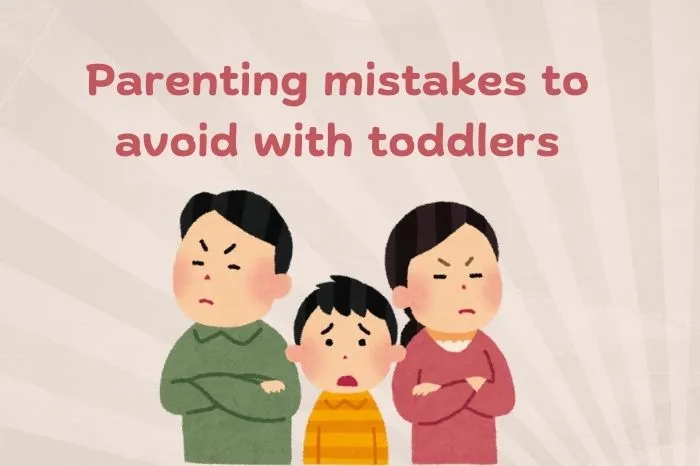Who does not want to get the most out of prayer and fasting? Well, everyone. As you know, fasting and praying are of immense importance, whether observed in Islam or Christianity, to ensure spiritual growth.
Are you making some grave mistakes that unintentionally make your fast, and prayer reduces its worth? If yes, here is our guide on things to avoid when fasting and praying.
This guide explores what to avoid when fasting and praying and provides concepts regarding fasting and praying in Islam and Christianity.
Things to Avoid When Fasting and Praying Islam
Fasting and praying are unshakeable pillars of Islam. As Muslims, we should all observe them—these obligatory practices bring spiritual, mental, and physical benefits. So, you must observe them as they deserve to be.
Things to Avoid When Fasting
Fasting reflects refinement. When we fast, we know the value of poverty and hunger. To make your fast effective, it is necessary to know what not to do:
- Eating or Drinking: Consuming any food or drink (even a small amount) from dawn (Fajr) until sunset (Maghrib) invalidates the fast.
- Vomiting intentionally: Don't induce vomiting to break your fast.
- Excessive physical exertion: Avoid strenuous activities that may weaken you or break your fast.
- Engaging in Gossip or Backbiting (Gheebah): Talking negatively about others behind their back is sinful and detracts from the spiritual benefit of fasting.
- Quarreling or Arguing: Getting into disputes or arguments can reduce the spiritual rewards of fasting.
- Lying: Telling lies, even small ones, negates the moral benefit of fasting.
- Engaging in Idle or Frivolous Talk: Engaging in meaningless or trivial conversations detracts from the mindfulness required during fasting.
- Skipping Prayers (Salah): Not performing the five daily prayers while fasting diminishes the overall act of worship.
- Showing Anger: Fasting requires patience, and displaying anger undermines the goal of self-restraint.
- Sexual Intimacy During Fasting Hours: Sexual relations between husband and wife are prohibited during daylight hours in Ramadan.
Things to Avoid When Praying Islam
Prayer is obligatory worship and builds a strong connection with Allah. Its importance lies in the fact that it distinguishes between the right and the wrong. To ensure that you get acceptance and the most out of this opportunity, you must avoid the following:
- Lack of Concentration (Khushu'): Praying with a wandering mind or getting distracted by worldly thoughts reduces Salah's spiritual reward.
- Rushing the Prayer: Performing it too quickly, without proper posture or reflection, can undermine its value. Prayers should be conducted with calmness and focus.
- Looking Around or Being Distracted: Moving your gaze unnecessarily or being distracted by your surroundings can diminish the humility and focus required in prayer.
- Talking or Responding to Others: Engaging in conversation during prayer nullifies it. Communication with others must wait until the prayer is completed.
- Fidgeting or Unnecessary Movements: Constantly adjusting clothes, scratching, or making unnecessary movements during prayer breaks can harm concentration and reverence.
- Praying in a Noisy or Distracting Environment: Performing Salah in places with excessive noise or distractions can make it harder to focus on the prayer.
- Incorrect Pronunciation of Quranic Recitation: Mispronouncing or not correctly reciting the verses from the Quran can impact the validity of the prayer. Proper rules of recitation should be followed.
- Performing Prayer in Tight or Unclean Clothing: Tight, revealing, inappropriate, or impure clothing should be avoided during prayer.
- Praying While Needing to Relieve Oneself: It’s best to relieve oneself before prayer. Praying while feeling an urge to use the restroom can cause discomfort and distraction.
- Skipping or Incorrectly Performing (Pillars) of Salah: Missing or improperly performing essential parts of the prayer, such as bowing or prostration, can invalidate the prayer. Every movement must be done correctly and fully.
Things to Avoid When Fasting and Praying Christianity
Christians take fasting and praying earnestly. The entire Christian clan put efforts into worshipping God with their heart. While fasting makes them closer to their God, prayers help them align with Christian teachings. If you are Christian and confused about what to avoid when fasting and praying, here is what you seek.
Things to Avoid When Fasting
Fasting is an important act of worship in the Christian community. It strengthens the bond between worshippers and God and brings peace and mental satisfaction. Whether Christians observe Lent, Daniel, Dry, or White Fast, they should avoid these things.
- Pride or Boasting: Avoid telling others or showing off your fast. Fasting is meant to be a humble act.
- Neglecting Prayer: Fasting without prayer defeats the spiritual purpose of the practice.
- Anger or Irritability: Hunger can make people irritable; avoid becoming short-tempered.
- Being Legalistic: Fasting isn’t about rigid rules but the heart’s posture towards God.
- Seeking Praise: Avoid seeking approval from others for your fasting efforts.
- Neglecting Acts of Kindness: Fasting isn’t just about abstinence but also about being more compassionate and loving towards others.
- Comparing Yourself to Others: Avoid comparing your fasting experience. Everyone's spiritual journey is unique.
- Guilt for Mistakes: Don't be consumed by guilt if you slip up during the fast. Ask for God’s grace and continue.
- Self-Righteousness: Fasting should never make you feel morally superior to others. It’s an act of humility.
- Ignoring the Purpose of Fasting: Don't fast just for tradition or habit. Understand why you’re fasting and its spiritual significance.
Things to Avoid when Praying
Like other religions, Christian prayers incorporate humility, forgiveness, and confessions. Here are certain things to avoid when praying in a church.
- Praying with Wrong Motives: Do not pray for selfish desires or personal gain but seek God's will.
- Empty Repetition: Avoid mindless repetition of words or phrases without genuine meaning or thought.
- Lack of Faith: Praying without believing that God can answer undermines prayer's power. Trust in God’s ability and timing.
- Pride and Self-Righteousness: Avoid praying to impress others or elevate yourself spiritually. Humility is vital to sincere prayer.
- Neglecting Confession: Don’t skip confessing your sins or seeking forgiveness. Sin can hinder your relationship with God.
- Praying Only for Yourself: Avoid being self-centred in your prayers. Include prayers for others and broader concerns.
- Distractions: Avoid praying with a distracted mind. Focus on God and the moment of prayer, eliminating unnecessary distractions.
- Ignoring God’s Will: Avoid praying solely for your desires without seeking God’s will to be done. Prayer should align with His plans and purposes.
- Lack of Persistence: Don’t give up on prayer if you don’t see immediate results. Jesus encourages persistent prayers.
- Using Prayer as a Last Resort: Don’t turn to prayer only when all other options fail. Prayer should be a first response, not a last resort.
- Praying Without Listening: Avoid treating prayer as a one-sided conversation. Spend time listening to God and seeking His guidance through the Holy Spirit.
Summing Up
Fasting and praying come with specific responsibilities and tasks. How you manage these spiritual tasks and make the most of your religious practices is up to you. However, if not done correctly, they would be useless. It is necessary to avoid mistakes and plan an effective fast or prayer. This guide highlights what to avoid when fasting and praying, specifically in Islam and Christianity.



